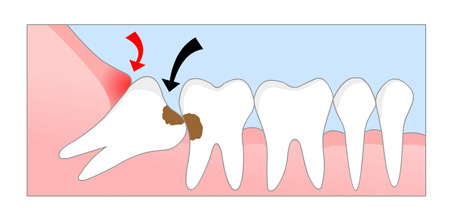Chewing gum has been a popular pastime for centuries, offering both enjoyment and practical benefits to people worldwide. Whether it’s freshening your breath, relieving stress, or simply indulging in a sweet treat, chewing gum plays a unique role in our daily lives.
But as with any habit, questions often arise about its effects on health and how long it’s safe to chew. Is it okay to chew gum for two hours? Can one piece of gum last all day, or does it lose its appeal after just a few minutes?
And is it safe to chew gum every day? In this article, we’ll explore these questions and more to understand the science behind chewing gum, its impact on your health, and whether it’s truly a habit worth keeping in your routine.
Is It OK to Chew Gum for 2 Hours?
Chewing gum is a popular pastime for many people worldwide, whether for freshening breath, relieving stress, or simply enjoying a sweet treat. However, with any activity, there are limits to what is considered safe or healthy. One question that often arises is whether it is okay to chew gum for two hours.
In general, chewing gum for an extended period, like two hours, is not inherently harmful for most people, but several factors should be considered before making it a regular habit.
Jaw Health and Muscle Strain
Chewing gum for extended periods, especially two hours, can cause jaw strain since the human jaw isn’t designed for continuous movement.
The temporomandibular joint (TMJ) can become fatigued, leading to discomfort or long-term damage. People with TMJ disorders or bruxism should avoid prolonged chewing. Additionally, the facial muscles can become tired, causing soreness or stiffness, especially for those unaccustomed to extended chewing.
Oral Health Considerations
Chewing gum offers benefits like freshening breath and cleaning teeth, but extended chewing can overstimulate salivary glands, potentially causing dry mouth and bacteria buildup if hydration is inadequate.
Sugar-free gum, especially with xylitol, helps reduce cavities and plaque, while sugary gum can lead to tooth decay. It’s important to choose the right type of gum for long-term chewing.
Digestive System Effects
Chewing gum stimulates the digestive system by signaling the stomach to produce gastric juices, which can lead to bloating or discomfort if no food is consumed. Prolonged chewing, such as for two hours, may exacerbate this effect.
Additionally, swallowing air while chewing can cause bloating, indigestion, or gas, so taking breaks or limiting chewing time is advisable to prevent these issues.
Behavioral Considerations
Chewing gum for two hours can become a habit, especially in stressful situations. While it may temporarily relieve stress or anxiety, over-reliance on this behavior can mask underlying issues.
In summary, chewing gum for extended periods is generally not harmful, but it’s important to pay attention to any discomfort and take breaks when needed.
Is It Okay to Chew 1 Piece of Gum Every Day?
Chewing one piece of gum every day is generally considered safe for most individuals. In fact, there are several benefits to chewing gum daily, provided it is done in moderation and with consideration for oral health.
Similarly, consuming candy occasionally can also be safe, but it’s important to enjoy it in moderation to avoid the negative effects of excess sugar.
Oral Health Benefits
Sugar-free gum, especially those containing xylitol, has positive effects on oral health by neutralizing acids, reducing plaque buildup, and preventing cavities.
It promotes saliva production, which helps wash away food particles and bacteria. However, it should not replace regular brushing and flossing, as it cannot remove all plaque or bacteria.
Stress Relief and Focus
Chewing gum has been shown to help reduce stress and anxiety in some individuals by providing a sensory distraction and promoting relaxation.
This is particularly beneficial for people who experience nervousness during stressful situations. Additionally, studies have suggested that chewing gum may improve concentration and cognitive performance, making it an excellent choice for people who need to stay focused during work or study.
Managing Cravings and Weight Control
Chewing gum can also help curb cravings and reduce appetite, making it easier to resist the temptation to snack on unhealthy foods.
Many people chew gum after meals to satisfy their sweet tooth without consuming additional calories. This can be particularly helpful for individuals trying to manage their weight or reduce calorie intake.
Potential Drawbacks
Chewing one piece of gum daily offers benefits like improved oral health, stress relief, and appetite control. However, it’s important to be cautious of potential downsides.
Some gums contain artificial sweeteners, which may not be suitable for everyone, and excessive gum chewing could cause jaw discomfort, especially for those with TMJ issues. In general, chewing gum in moderation and opting for sugar-free varieties can provide these benefits without major drawbacks.
How Long Can One Piece of Gum Last?
The length of time a single piece of gum lasts can vary depending on several factors, including the type of gum, the person’s chewing habits, and the ingredients in the gum.
Flavor Duration
The duration of how long gum lasts is mainly determined by how long its flavor stays. Most gum flavors last for about 5 to 10 minutes, as the flavoring compounds dissolve with the combination of saliva and chewing.
Mint-flavored gums may last a bit longer, while fruit-flavored gums typically lose their taste quicker. After the flavor fades, people often continue chewing for the physical sensation, despite the absence of taste.
Texture and Consistency
Once the flavor is gone, the texture of the gum may change as well. It becomes less pliable and can become tougher or stickier. At this point, the gum may not be as enjoyable to chew, and many people choose to discard it.
When to Discard Gum
While there is no definitive time limit on how long a piece of gum can last, most people discard their gum after around 20 to 30 minutes.
If the gum has lost its flavor and has become difficult or uncomfortable to chew, it is usually time to throw it away. Chewing gum for extended periods without flavor may also lead to jaw fatigue or discomfort.
Chewing Habits
The longevity of a piece of gum also depends on how often and intensely a person chews. Someone who chews slowly may be able to stretch the lifespan of a piece of gum, whereas someone who chews aggressively might wear out the gum more quickly.
Conclusion
Chewing gum can be enjoyable and beneficial, offering fresh breath, stress relief, and oral health benefits. While occasionally chewing gum for two hours is generally okay, it’s important to take breaks if discomfort arises.
Chewing one piece of gum daily is safe for most people and can improve oral hygiene and help with stress. Though gum typically loses flavor in 10 to 20 minutes, it can last longer depending on individual habits. Moderation and selecting the right gum are key to maximizing its benefits.



